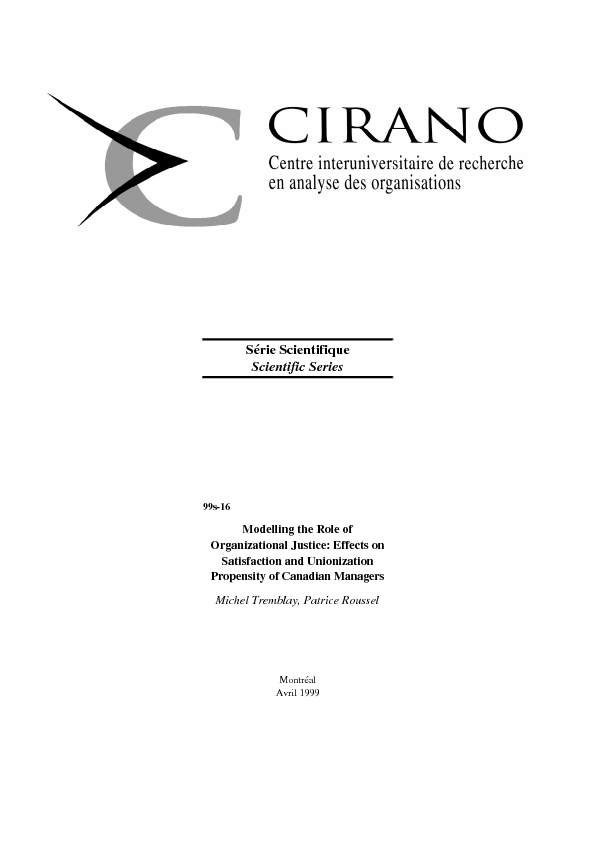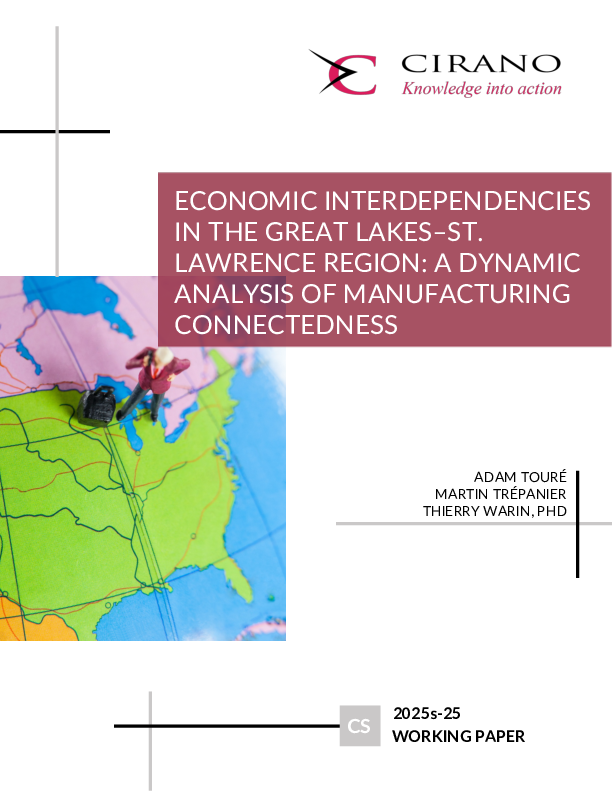Modelling the Role of Organizational Justice: Effects on Satisfaction and Unionization Propensity of Canadian Managers
This research explores the direct influence of pay referents and procedural justice on pay satisfaction, job satisfaction and organization satisfaction, and the intermediary role of these three aspects of satisfaction between justice in its various forms and unionization propensity. To test the importance and directions of these relations, we used a LISREL-type structural equation model. The findings showed that the three equity referents of organizational justice (internal, external and employee) are linked to pay satisfaction, and that distributive justice is a better predictor of pay satisfaction than procedural justice perceptions. In contrast, procedural justice is a better predictor of organizational satisfaction and job satisfaction than are distributive justice perceptions. Moreover, the final model suggests that job satisfaction and organization satisfaction play a more significant role in propensity to join a union than do organizational justice perceptions. The paper also sets out the limitations of the study and its practical implications, and makes some suggestions for future research.
[ - ]




